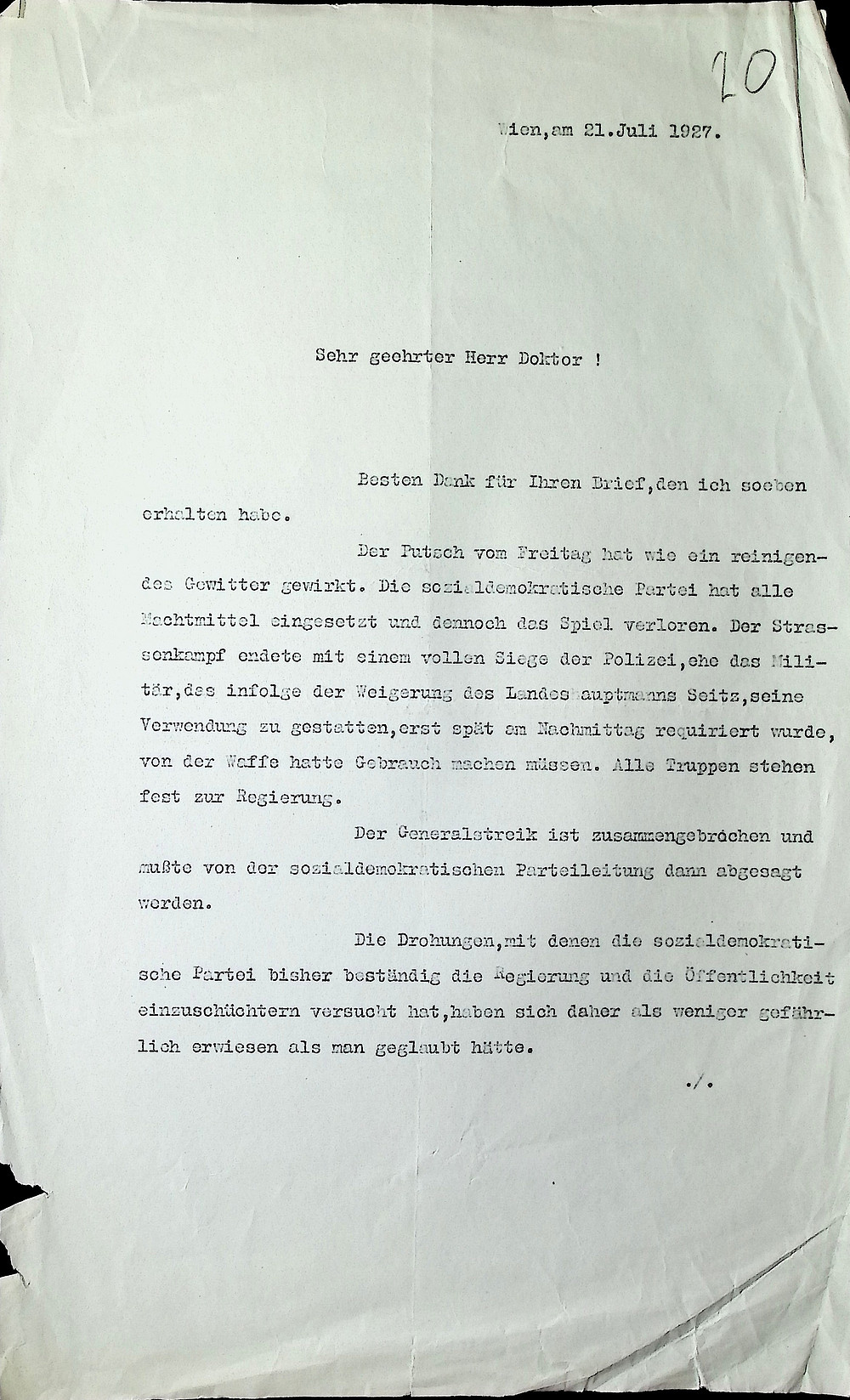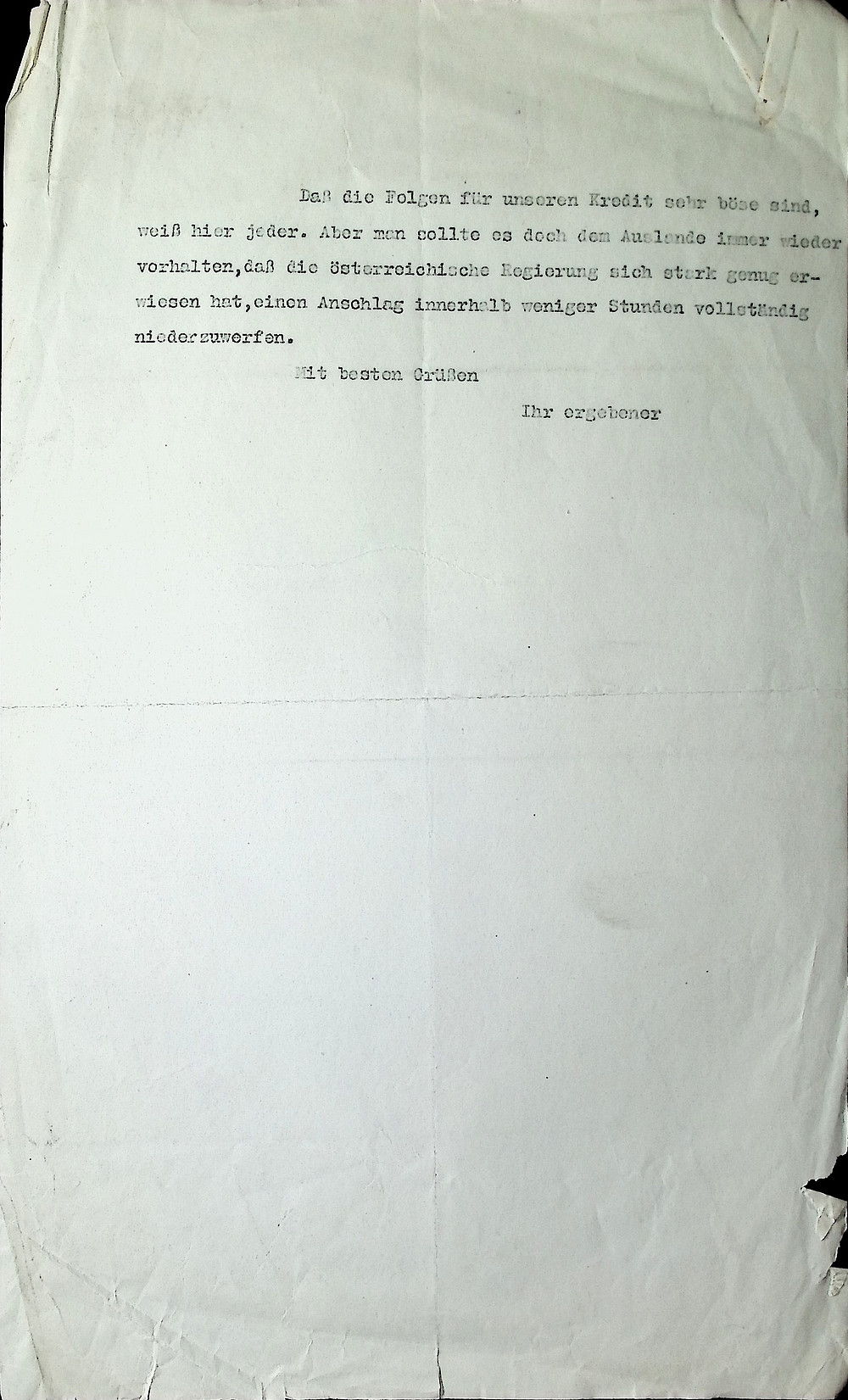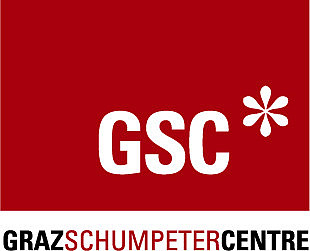Ludwig Mises and the Vienna Private Archive
Ludwig Mises - The Person
Ludwig Heinrich Edler von Mises was born into a Jewish family in 1881 in Lemberg (today: Lviv in Ukraine), the then capital of the crown land of Galicia. The Mises family moved to Vienna, where his father Arthur worked in the k.k. Ministry of Railways. From 1900 to 1906, Mises studied law at the University of Vienna. There, together with later prominent colleagues such as Joseph Schumpeter and Otto Bauer, Mises attended the seminars of Eugen Böhm-Bawerk, Professor of Political Economy and Finance Minister of the “cisleithanian” half of the empire.
From 1909, Mises began to work as a conceptual intern at the Chamber of Commerce and Industry in Vienna on Stubenring. As such, he reported to the Chamber of Deputies on the Chamber of Commerce's opinions on draft legislation. He rose to become a senior official in the accounting office under the Ministry of Finance, which was responsible for settling the “pre-war debts”, as the flow of money to the opposing countries was blocked during the First World War.
Mises - The Economist
Mises habilitated at the University of Vienna in 1912 with his “Theorie des Geldes und der Umlaufmittel” (later published in English as "Theory of Money and Credit"), which represented an integration of the theory of money into the marginal utility framework of the Austrian School of Economics. He then became a private lecturer and unpaid associate professor at the University of Vienna. From the 1920s onwards, Mises held his so-called “private seminar” twice a month in his office at the Chamber of Commerce. There he discussed economic and economic policy issues with Friedrich August Hayek, Martha Stefanie Braun, Oskar Morgenstern, Fritz Machlup-Wolf and Gottfried Haberler, among others, but also, for example, psychology and history.
In “Die Geminwirtschaft” (later published in English as "Socialism") from 1922, Mises wanted to demonstrate the impossibility of economic calculation in centrally controlled social systems. Together with Hayek, Mises founded the Austrian Institute for Business Cycle Research at the end of 1926, which began operations in 1927 and was dedicated to empirical business cycle research. In 1934, Mises moved to Geneva, where he received a paid professorship at the Institut universitaire de hautes études internationales. After the occupation of the northern part of France by the Wehrmacht in 1940, Mises no longer felt safe as a Jew in Geneva and emigrated to the USA at the age of 59, where he held an endowed professorship at the University of New York between 1945 and 1969 and became the main protagonist of Austrian Economics in the USA, a strand that is still highly influential today, especially outside academic circles.

Ludwig Mises' Private Archive
When Ludwig Mises moved from Vienna to Geneva in 1934, the materials and documents he had collected were kept in a room in his Vienna apartment. These included his correspondence with colleagues, students, journalists, various institutions and associations (e.g. League of Nations, European Customs Union, Austrian Ministry of Finance): League of Nations, European Customs Union, Austrian Ministry of Finance), minutes of meetings of the Chamber of Commerce and Industry and documents relating to Mises' lectures and seminars. This collection was confiscated by the National Socialists in 1938 and moved from Vienna to Berlin and later relocated to Lower Silesia due to the looming air threat.
At the end of the Second World War in 1945, such outsourced files fell into the hands of the Red Army, including the Mises documents, during its advance. These were taken to Moscow. In August 1945, the Soviet side decided that a separate archive should be set up for these so-called “looted files”. The Council of People's Commissars of the USSR, chaired by Vjačelav Molotov, officially decided on March 9, 1946 to set up a separate state “special archive” for 1.5 million “looted files” from 20 different countries. Using German and Austrian prisoners of war, a large archive building was built in the north of Moscow within a few years and the captured materials were placed in absolute secrecy, without researchers being able to use them. There was no signpost, no inscription, no directory to indicate this. It was not until 1990 that the public became aware of its existence thanks to the research of a journalist.
In 1991, Stefan Karner was the first Western European historian to gain access to the archive's “looted files”. As a result, the 477 linear meters of Austrian holdings in the Moscow Special Archive were listed in a scientific project. On this basis, bilateral restitution negotiations were conducted between Russia and Austria in the early 2000s, in which Stefan Karner was involved as an expert for the Austrian Foreign Ministry. The Mises holdings, Fonds 623 of the Moscow Archives, were thus restituted and are now in the Austrian State Archives/Archives of the Republic in Vienna. It comprises a total of 196 file fascicles with a total of 16,599 pages. Around 80 fascicles contain correspondence with colleagues and various institutions. The collection includes documents covering the period from 1900 to 1934, in individual cases up to 1938.

Participating institutions


Links
- OeNB Anniversary Fund
This project is funded by the OeNB-Anniversary Fund.
- Graz Schumpeter Centre
This projected is located at the Graz Schumpeter Centre.
- Forschungsportal Graz Schumpeter Centre
Click here for the research portal of the Graz Schumpeter Center.